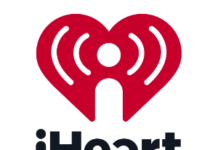
(By Charlie Sislen) Every year, broadcasters are conflicted with annuals. While it is great to get significant money on the books for the following year, in a typical year, annual rates are often below what most of us would regularly accept. This conflict is now heightened. As rating points are presently suppressed, and demand is lower than normal, the rates that advertisers are requesting for next year are concerning.
So what does a broadcaster do? Do you guarantee rates that you will regret as business returns? Alternatively, do you enforce rates that make it unlikely that you get that booked revenue? Because of the unknown, this appears to be a no-win situation.
What makes this decision unusually difficult is that listening levels, and therefore most stations’ ratings, were suppressed by COVID-19. As we at Research Director, Inc. have documented, market listening dropped significantly in the March and April 2020 PPM surveys. As we have also documented, listening is gradually rebounding to previous levels.
It all comes down to great negotiating and relying on your relationship with this advertiser.
While no one can predict the future, by showing them the drop and slow rebound of market listening and listening to your station or cluster, you can start a productive conversation. Open with this negotiating strategy: “I will meet the rate you need for 2021, but we will see substantial growth during the year. If this happens, can we agree to adjust the parameters of the buy?” Once that is agreed upon, then the real negotiation begins.
This negotiation can take two forms. First, you can ask for a financial bonus if your schedule over-delivers. Maybe not the full amount, but say something like: “This is what we expect your buy to deliver. If we go over by X percent, can we be compensated by Y percent?” Y should be less than X. For example if this schedule delivers 20% more impressions than planned for, can we get a 10% bonus? The second way is to have a trigger so that, when a certain number of impressions are met, the broadcaster can reduce the number of spots and therefore the number of impressions.
Is this a type of reverse guarantee? YES. In typical times, we are opposed to guarantees. However, these are not typical times. PUMMs, and therefore listening to individual stations, are rebounding. Advertisers need to acknowledge this and work with you towards a fair deal for both parties.
Is this going to be easy? ABSOLUTELY NOT! You are not working in a vacuum, and much depends on how other broadcasters handle their annual buys. To make this work, it will take a skillful sales effort and a great deal of flexibility. It will also depend on the relationship you have built with your advertisers in the past. However, done successfully, it can mean the difference between winning and losing in 2021.
Charlie Sislen is a partner at Research Director, Inc. He can be reached at 410-956-0363 or by e-mail at [email protected]. This essay is part of a series titled “Growing the Radio Pie.” To view past articles, visit The Ratings Experts at Research Director, Inc. online here.








